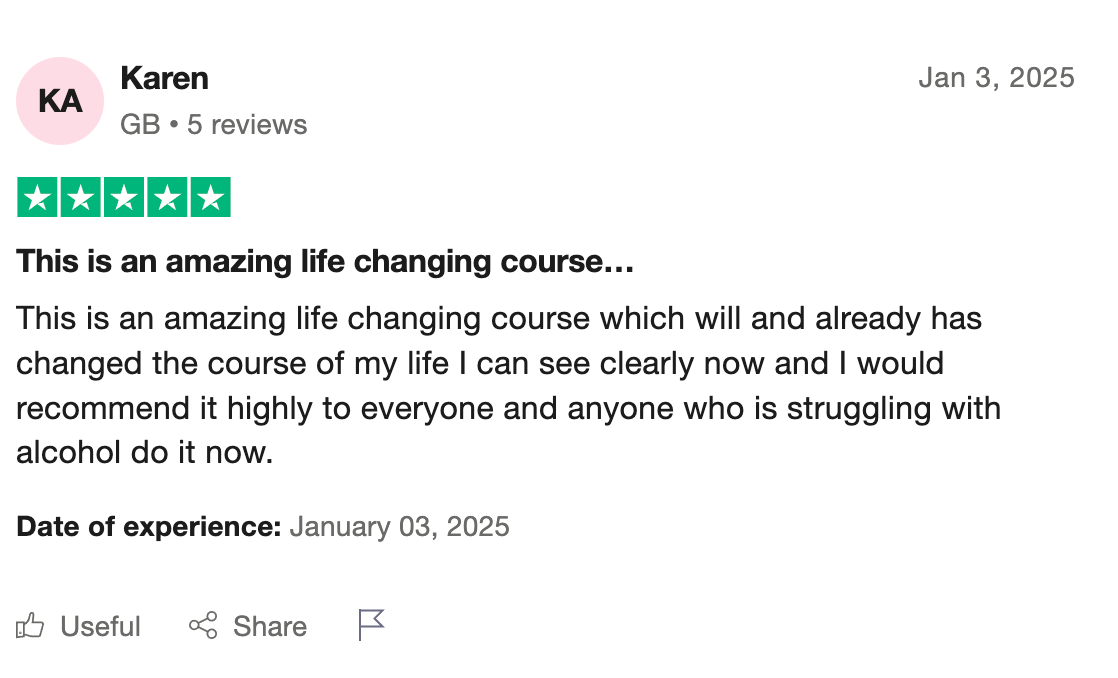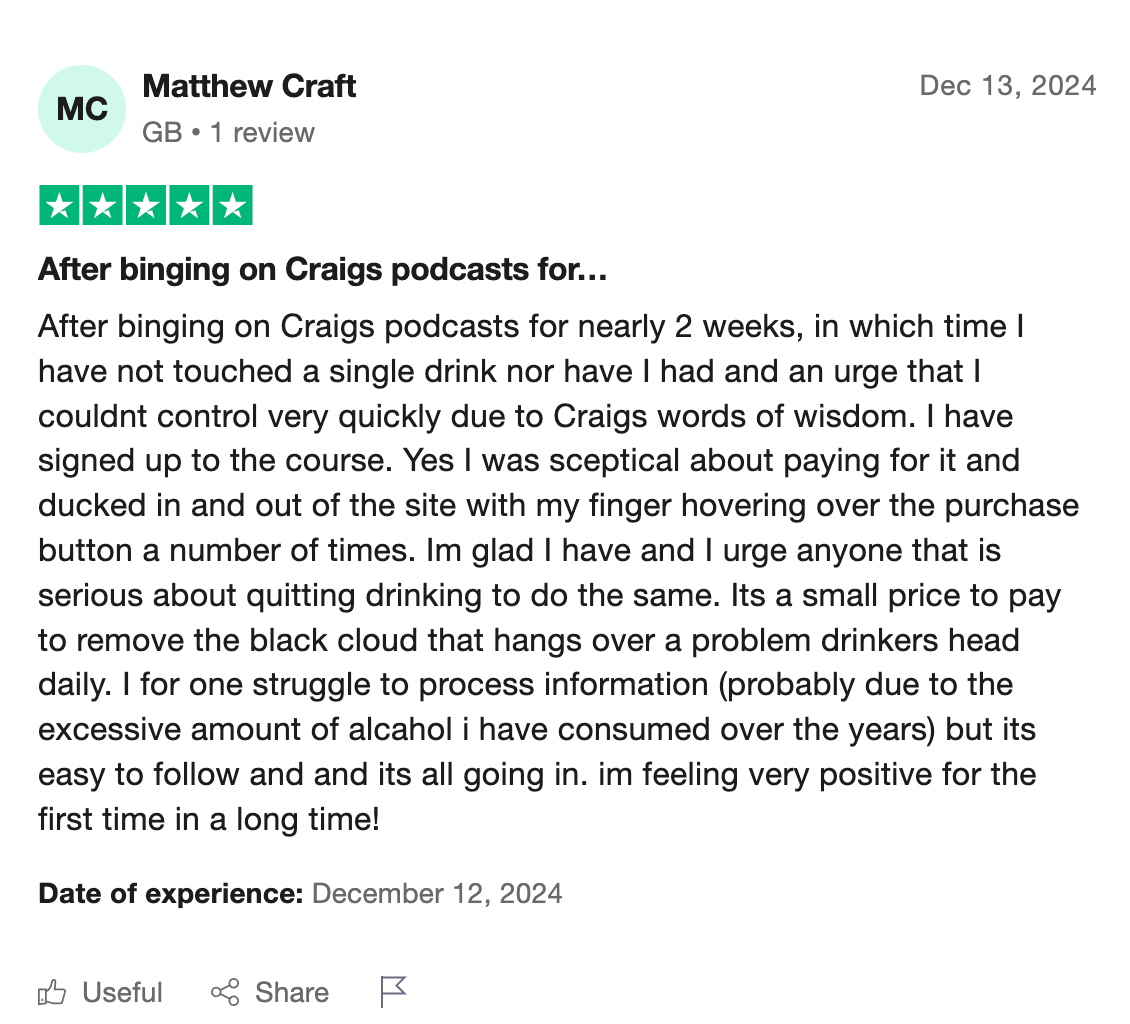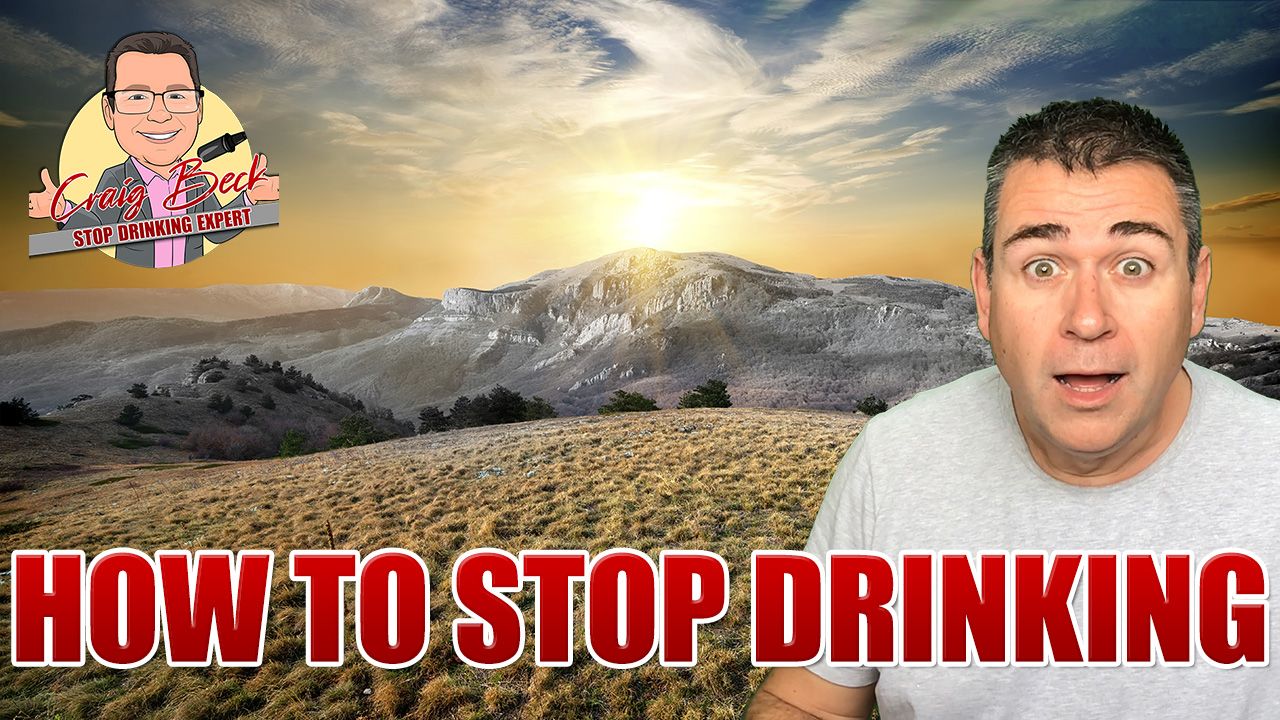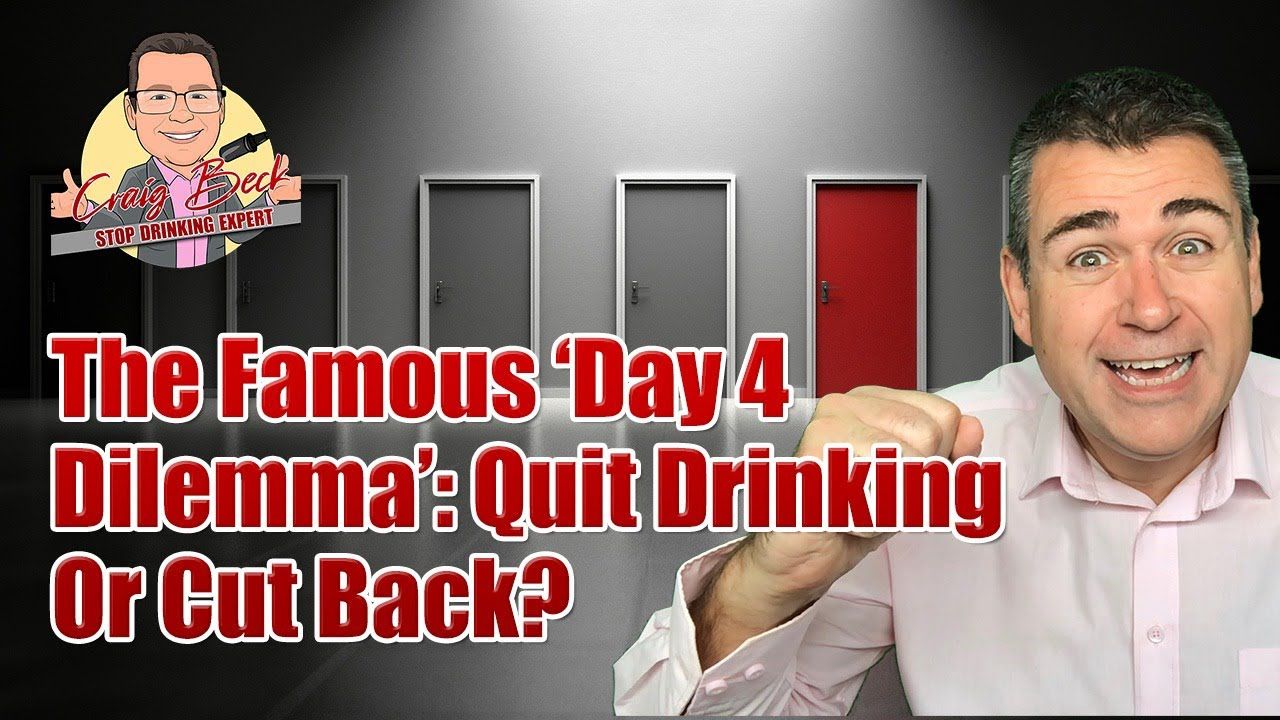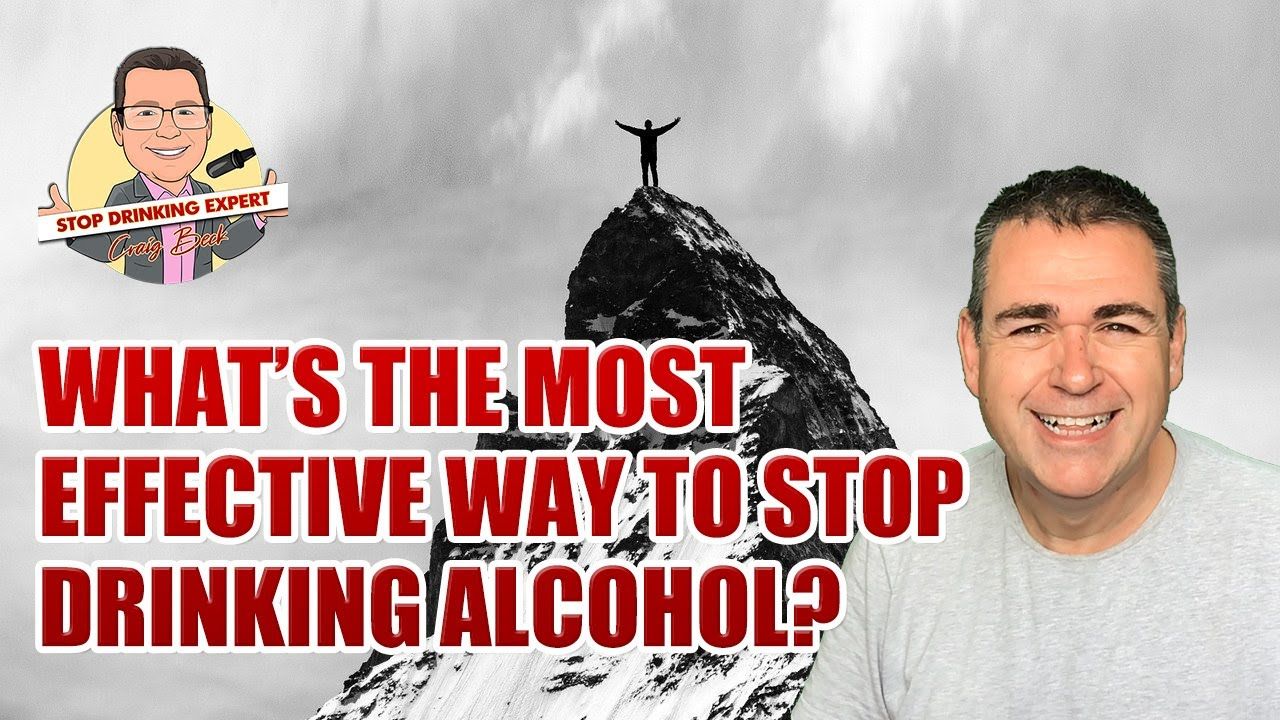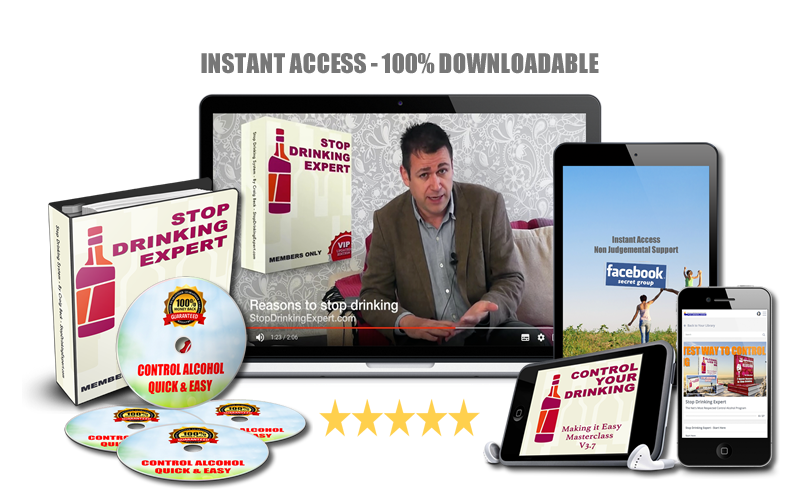Spotting The Five Warning Signs Of Alcohol Problems In Your Life
Spotting The 5 Warning Signs Of Alcohol Problems
Sunrise should smell of coffee yet your kitchen often reeks of stale chardonnay. If that sentence lands a punch it may be time to audit the role alcohol plays in your story. Many folks miss early clues because society normalises heavy drinking then mocks those who struggle. This guide shines a bright torch on five red flags so you can act before the habit hijacks health hope and hard earned cash. Download Alcohol Lied To Me free at StopDrinkingExpert.com and follow along.
Sign One: Drinking Slips Into The Morning Hours
The first clue hides in the clock. When a casual evening tipple sneaks into brunch or earlier you face more than a harmless indulgence. Morning drinking signals the body has begun craving ethanol to steady nerves and banish fog. Researchers at King’s College London note that cortisol spikes overnight among dependent drinkers which triggers shakiness by dawn. A swift shot calms the jitters yet also cements the physiological loop that deepens dependence.
Consider George an accountant from Manchester who started adding a slug of gin to breakfast orange juice on stressful audit days. Within months the gin appeared daily even on lazy Sundays. George told himself the citrus made it healthy which is a bit like painting racing stripes on a tortoise and calling it quick. If dawn drinks appear in your routine pause immediately. Swap the spirit for a tall glass of cold water and notice how quickly energy returns.
Digital diaries help here. Record every sip for a week then study the pattern. If entries cluster before noon alarm bells ring. Use that data to craft a new morning ritual. Exercise light or meditation earns dopamine without damaging the liver. For extra tips skim our article on how to drink less alcohol and test one suggestion tomorrow. Early intervention beats late remorse.
Finally remember the office brave face fools nobody. Colleagues smell liquor masked by mints and clients clock the slight slur. Showing up tipsy risks livelihood along with dignity. Break the cycle now and mornings will regain their crisp splendour.
Sign Two: Promises Keep Breaking Like Cheap Umbrellas
Every Sunday night you vow to stick to two glasses then Friday shows up and the bottle empties again. Repeated broken promises reveal that willpower alone cannot tame the compulsion. Psychologists label this the intention–behaviour gap. When alcohol rewires reward circuits intentions crumble quickly. That gap widens when stress rises or when mates egg you on at the pub.
Janet from Chicago set phone alarms reading “Only two tonight” yet still polished off a full bottle while binging dramas. The next morning she binned the empties swore off wine and repeated the loop Thursday. Her story mirrors thousands. To close the gap enlist accountability. Tell one friend your goal and ask for text check-ins during trigger hours. App trackers that flash progress bars boost motivation by turning abstinence into a visible streak.
Language choice matters as well. Swap “I must not drink” for “I choose clarity tonight.” The brain handles positive framing better than prohibition. Pair that with distraction. When the craving window opens cook a spicy curry or walk the dog round the block. Novel stimuli jolt attention away from the fridge. More tactics await in our piece on whether alcohol causes depression because mood and relapse dance together.
Broken promises do not prove weak character they prove a strong drug. Grab professional support if home tricks fail. Cognitive behavioural coaches teach simple reframes that shrink cravings to background chatter.
Sign Three: Health Complaints Start Whispering Then Shouting
The body complains long before doctors detect liver spots on a scan. Early signals include stubborn insomnia heart palpitations and right side abdominal twinges. Ignore them and the whispers swell into roars. A study in The Lancet shows moderate heavy drinkers face elevated blood pressure even when weight stays normal. Combine that pressure with dehydration and you create a perfect storm for pounding headaches that coffee cannot cure.
Watch skin tone and eyes. A dull grey hue or slight yellow tint suggests the liver is waving a warning flag. Men may notice sluggish performance in the bedroom as alcohol lowers testosterone and disrupts vascular flow. Explore our frank discussion on erectile dysfunction and alcohol if that hits close to home. Women often miss the link between recurring yeast infections and nightly prosecco until a candid gp connects the dots.
Lab tests help yet intuition often detects issues sooner. If hangovers feel heavier or recovery drags longer pay attention. Muscles ache because the body diverts glutamine to detox pathways leaving none for repair. Knocking back sports drinks will not fix the deficit while booze pours in. The good news arrives fast once drinking slows. Blood sugar stabilises within days and gut bacteria flourish within weeks restoring natural energy.
To measure progress track resting heart rate with a smartwatch. Values typically drop five to ten beats per minute during the first sober month. Data gives proof and proof builds resolve.
Sign Four: Social Life Shrinks To Bottle Shaped Rooms
When invites that lack alcohol sound boring you have crossed another line. Healthy adults enjoy music hiking films and museum visits without obsessing over drink availability. Problem drinking funnels leisure time toward bars living room sofas and late night kitchen islands. Variety dies and loneliness grows even in crowded spaces. Ironically heavy drinkers often consume alone because company might judge quantity.
Tariq loved photography yet his camera gathered dust while pint glasses multiplied. Saturdays that once captured sunrise over the Peak District turned into blurry afternoons recovering from lager. His world contracted like a wool jumper washed hot. Reclaiming hobbies broke the spell. He joined a sunrise walking group and soon swapped bitter for thermos tea. Fresh friendships formed around shared interests not shared shots.
If you relate, choose one forgotten pastime and schedule it this week. Book tickets first then plan transport. The brain treats the ticket as a commitment barrier which lowers the chance of bailing when a craving whispers. Need inspiration? Read our post on drinking to escape reality and discover playful alternatives that spark the same thrill without the fallout.
Also scrutinise peer groups. Some mates may mock sobriety because your change mirrors their unease. Seek allies who respect boundaries. Online forums supply instant camaraderie and practical hacks. Remember a single supportive voice can outweigh five cynical ones.
Sign Five: Feelings Roller Coaster Without Obvious Cause
Alcohol meddles with neurotransmitters so emotions swing wildly. One minute you joke loudly the next you brood in the corner plotting existential upheaval. These mood swings persist even on days you stay dry because the brain chases equilibrium after repeated chemical spikes. Chronic irritability, anxiety spikes at dusk, or bouts of unexplained sadness all hint at underlying dependence.
Science backs anecdote. Harvard scholars found that heavy drinkers show reduced serotonin synthesis for up to two weeks after a binge. Low serotonin dampens joy and sharpens worry. Guess what temporarily lifts serotonin again? Another drink. That vicious circle traps many intelligent folks who mislabel the cycle as generalised anxiety disorder. Accurate labelling empowers escape. When you realise the churning stomach stems from withdrawal not life circumstances the solution flips from self-analysis to strategic abstinence.
Mindfulness practice offers immediate relief. Sit quietly notice bodily sensations and label them without judgement. This simple act recruits the prefrontal cortex which cools the limbic system. Pair mindfulness with balanced meals featuring complex carbs lean protein and magnesium rich greens. Nutrients rebuild neurotransmitters faster than greasy takeaway. Remember progress beats perfection. A calmer baseline mood arrives after about ten consecutive alcohol free days.
More Help From The Sobriety Blog
Does this sound familiar?
- Drinking to escape stress and to cope with the pressures of life?
- Waking up full of guilt and regret that you drank again last night despite promising that you wouldn't?
- Hiding alcohol or the evidence of your drinking?
- Feeling like you are living a double life because of your drinking?
- Creating silly rules to try and control your drinking (e.g., I will only drink on special occasions)?
The good news is that you are not alone; the better news is that I can help.
Meet Craig Beck, The World's Most Respected Sobriety Coach
Craig Beck, better known as “The Stop Drinking Expert”, turned a 20-year battle with alcohol into a roadmap for lasting freedom. The bestselling author of Alcohol Lied to Me and The Sobriety Secret discovered that traditional routes like Alcoholics Anonymous can feel embarrassing, public, and all too often, entirely ineffective.
His method is different. It shows you:
- Why you drink in the first place—the hidden brain loops alcohol hijacks.
- How to switch off cravings before they even start.
- A willpower-free exit plan you can follow privately, at your own pace—no labels, no awkward meetings, no medication.
Hundreds of thousands worldwide now wake up clear-headed, proud and at peace thanks to Craig’s approach. Will you be the next?
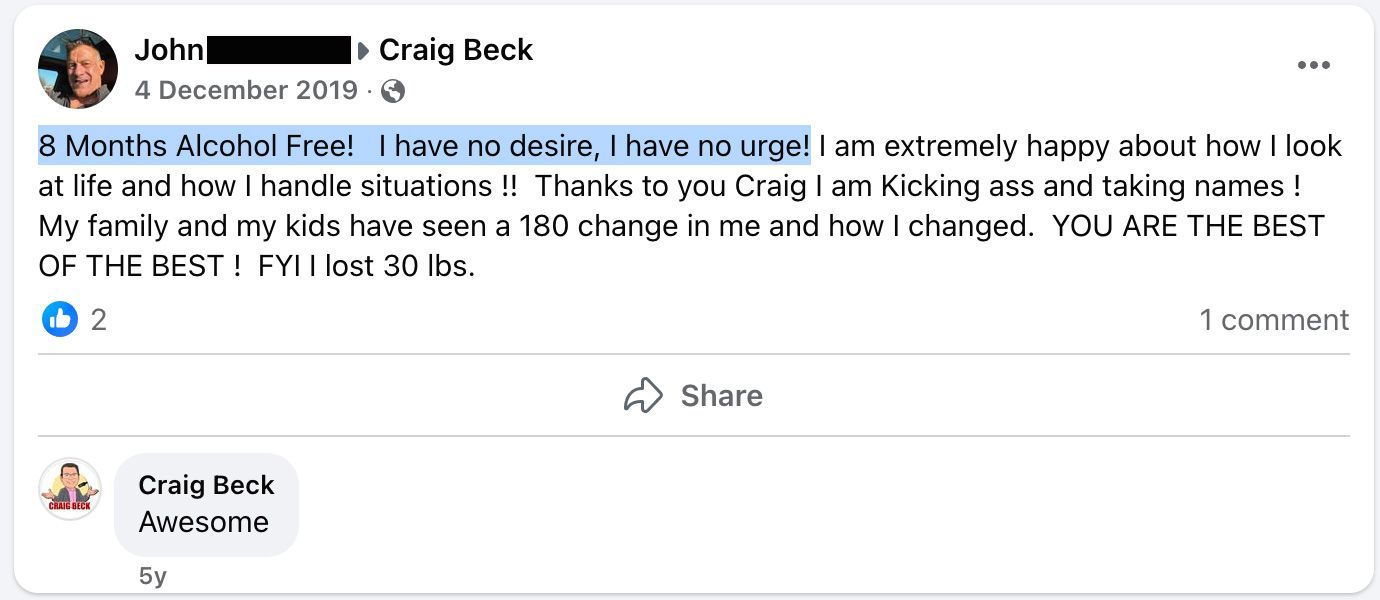
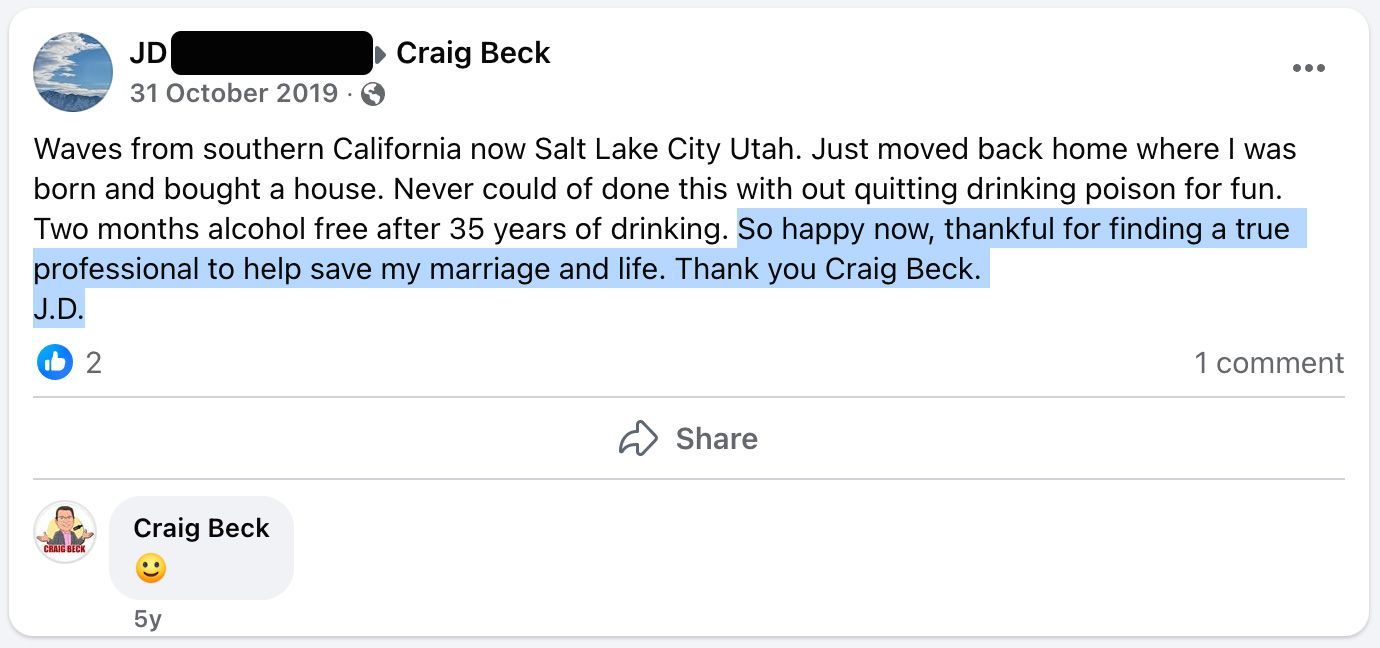
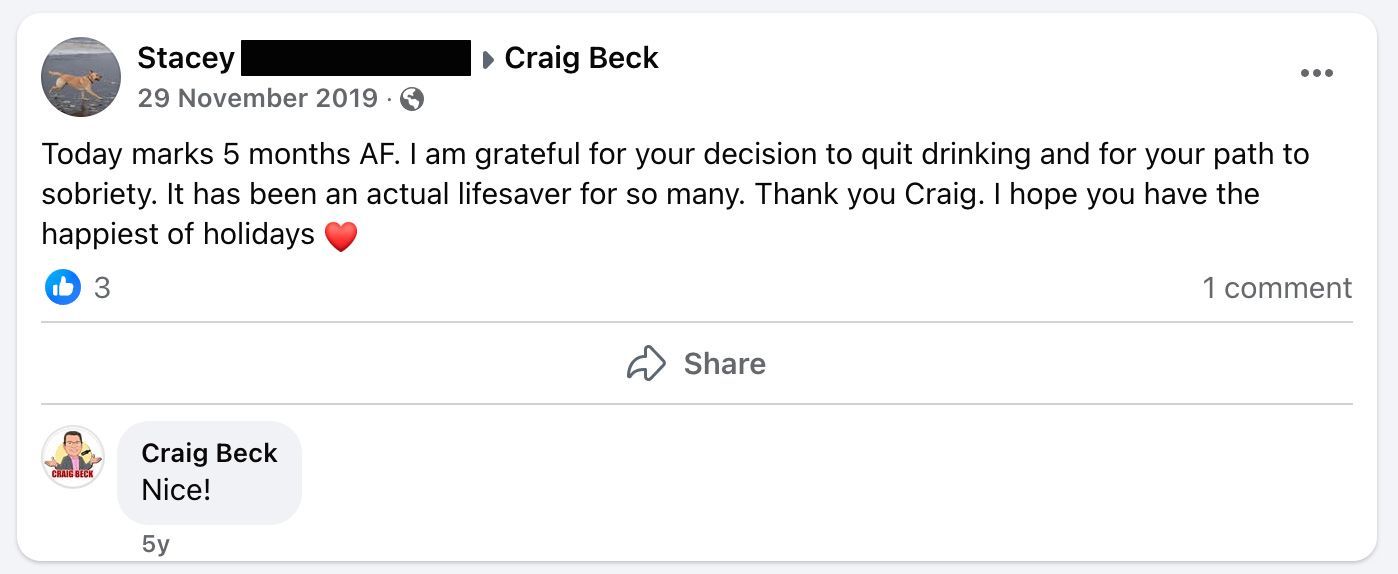
"Effortless Sobriety: The Proven Path to End Problem Drinking"
No one likes asking for help with their drinking—it feels personal and heavy. But if willpower alone hasn’t worked, it’s not because you’re weak. Research indicates that relying solely on grit is unsuccessful approximately 95 percent of the time. You’ve simply been using the wrong tool for the job.
Download my free ebook or decide now get started with the full course and learn:
- Why the game is rigged: how alcohol rewires your brain chemistry and makes “just trying harder” almost impossible.
- A science-based exit plan: practical steps that work quickly, privately, and on your terms.
- No awkward meetings or risky meds: forget the gimmicks—this is about smart strategy, not shame.
`Are you ready to step onto solid ground? Get off the fence, take action, and start taking back control—quickly, confidently, and without the struggle.
Over 250,000 Happy Sober Clients Can't Be Wrong:






